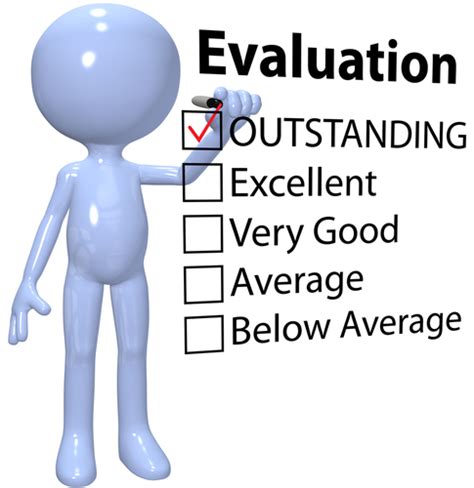Article-Detail

The Evaluation process actually works so work it!
We have all been there. We see the appointment on our calendar and we watch the clock ticking closer to the time that we are to go into our supervisor’s office and get our performance appraisal. We can feel our hearts pounding in our chest, palms sweaty as no fewer than a billion thoughts race through our minds. “What’s he going to say about that time I… How much will she weigh my absences… He had better mention my shining moments” and more. The performance appraisal can be a stressful moment in the relationship between you and your boss. If you are a supervisor with the responsibility of evaluating your team, understand that this is what your direct reports are feeling, from the time the appointment is set on their calendars. I want to share with you five common mistakes made by leaders who fail to make the most of this crucial element of your job.
1. You only do it once a year: Evaluation anxiety builds for about 12 months for your employees because you rarely share your assessments of them. If you aren’t giving your team constant feedback you are missing out on a golden opportunity for their development. The evaluation is a process intended to improve your team by improving each of the players. It is a continuous process. When the day finally does come around that you share your formal assessment, please be prepared. Let your team know that their development is important to you.
2. You generalize anecdotes in unproductive ways: Getting caught up in the moment is easy to do if you aren’t constantly giving feedback to your team. A drawback to the annual review as a process is that the focus tends to be on recent events with a focus on the negative depending on rater bias which is usually determined by their opinion of you. A good strategy is to make an effort to find the positives in negative events and to find lessons in the successes.
3. You use too much of the time talking: This is not an opportunity for you to demonstrate your infinite wisdom or knowledge. To your ego, this is a chance to strut in the end zone a bit, resist the temptation. This is meant to be a two way conversation. Ask a few questions and listen to the ways your employees see their jobs, challenges and strengths. Long Beach State University has negotiated the two way conversation into their bargaining agreement. 4. The evaluation can help you become a better decision maker: If you employ the two way conversation, ask questions and seek to hear your people, your reward is improved access to information. Having open access to your people and their experiences will help you make better decisions about who gets projects, promotions, or Improvement plans. Use the process to develop your team and yourself. 5. The evaluation can be a valuable development and motivational tool: Your people want your approval and are surprisingly willing to stretch themselves for it. Do not use this fact to demean or harm your people. Their motivation can be used to help them be better at their job, move up or realize their full potential. Always keep in the front of your mind that the evaluation process is intended to improve your team by improving the people on it. It isn’t meant for you to tell your people they mean the world to you, it also isn’t your shot to rail on about a perceived slight or painful memory. The evaluation is a tool that you can use to improve your team, your organization and yourself. Similar to the way a coach will direct his players’ attention to the time, down, distance and score then begin to share his expectations. Then he can encourage because the evaluation process is about feedback. This feedback should be familiar to the employee and consistent with daily/weekly/monthly feedback you regularly give. In the best cases, no one is surprised, anxious or stressed out about going through this process with you. Instead, it is a motivating experience that people see as valuable to their development and that you see as an opportunity to grow your people. If you view the evaluation as an opportunity and fully tap into your team your people will in turn and look to support your success. Use the process to help improve your team and organization and you will SOAR! William A. Brown January 27, 2019 http://www.preservearticles.com/201105216973/evaluation-process-in-education.html https://www.thebalance.com/performance-appraisal-problems-1918857 https://daf.csulb.edu/offices/bhr/staffpersonnel/perf_eval_guide/process.html




